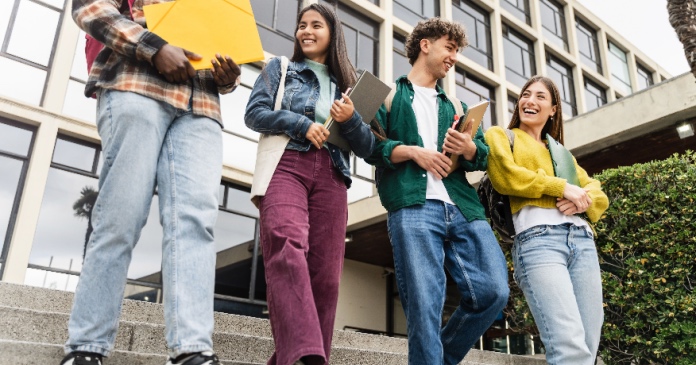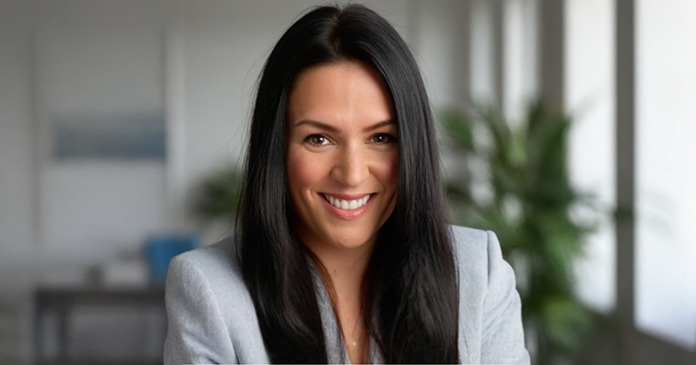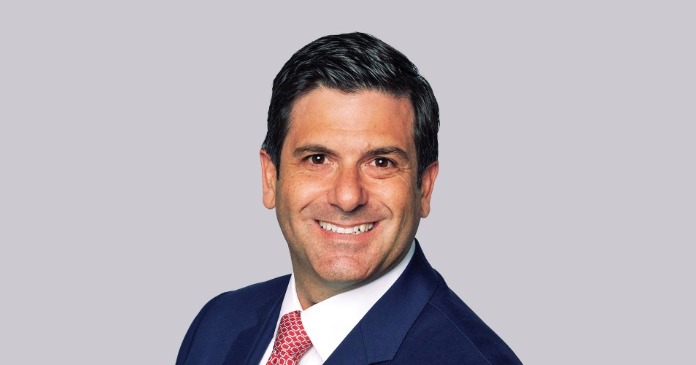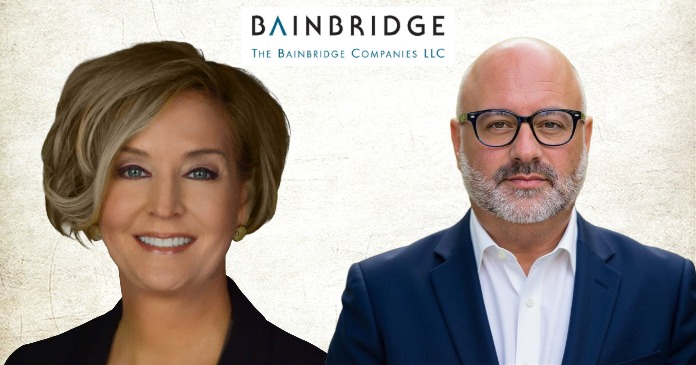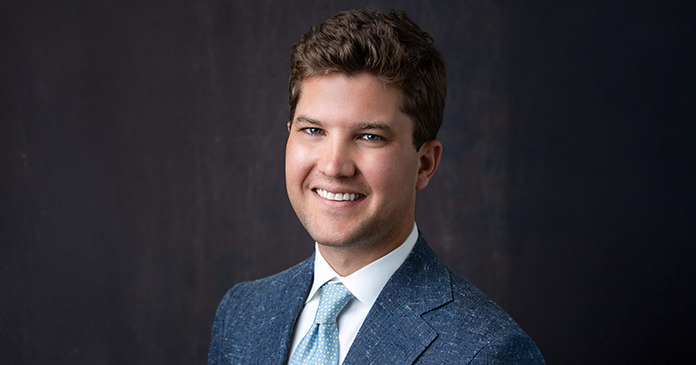The one-stop waste management and sustainability company that now takes out the trash at more than 200,000 units across the country, was founded in 1995 by CEO Mike Ferris, VP of Sales Dave Magrisso and COO Brent Smith, with the goal of providing an environmentally responsible system for waste management that would be an attractive amenity for apartment communities and would benefit their bottom lines through ancillary income generated by the service.
Valet Waste’s three founders believed their plan for keeping trash out of sight and under control would increase curb appeal and that door-to- door trash pickup almost every night of the week, combined eventually with recycling, would bolster resident loyalty and improve resident retention. They also believed the win-win waste management solution would attract and retain customers for their fledgling business. And they were right in a big way.
The company that now counts among its clients apartment REITs AIMCO, Camden Property Trust and Colonial Properties Trust, private upscale developer/ owner/operators like Gables Residential, JMG, Lincoln Property Company and ZOM, and Riverstone Residential, the largest independently run fee-management company in the country, started out with a customer base of individual residents, not property owners and managers.
Here’s egg on your car
Valet Waste was born in Tampa, the brainchild of its only employee for the first year of its then unnamed life. Inspired by his own trash troubles, Ferris conceived the idea for the business while egg leaked out of a trash bag balanced on the hood of his car as he waited his turn to throw his garbage into the community compactor that was not within easy walking distance of his apartment.
“And the woman in front of me is throwing her trash bag into the compactor and it lands outside where there’s literally 300 bags of trash lying around because the compactor is broken. The next guy behind her was complaining, ‘This is ridiculous,’ and another guy was driving out of the community with trash on the trunk of his car because he’d forgotten about it,” recalled Ferris, an apartment dweller for years, who always looked for rental housing with the best package of amenities, but never seemed to find time to use them.
“So, I’m thinking about how I’m paying all this money for rent and all those nice services and amenities I haven’t had time to use, and I decided they should be picking up my trash,” he realized that morning and then took that thought one step further. If the community wouldn’t provide that service to the residents, perhaps he could do it himself.
As the concept fired his imagination, Ferris went back to his apartment, wrote down his ideas and took his offer to pick up the residents’ trash for a fee to the manager of the apartment community, who accepted his proposal gladly, probably thankful that she would not have to evict him for violating the trash rules at the community.
Ferris, who candidly admits that he was fined more than once for putting his trash outside his apartment door before he went to bed at night, took his idea door-to-door in that Tampa community and, eventually, every resident there subscribed to his service.
Take me out to the trash bin
It was the New York Yankees who enlightened him about the hazards of the subscription system. During spring training, players like Derek Jeter, Darryl Strawberry and some dozen or so others Yankees lived there and they all hated taking out the trash, said Ferris. He quickly figured out why he frequently would see Strawberry or some other team member, hurrying back across the hall from Jeter’s apartment just before Ferris was scheduled to arrive around 8 p.m. They were teaming up their trash.
“So I’d have to knock on Derek Jeter’s door and Darryl’s and the other guys’ doors and say, ‘Hey, Derek’s got the service and he’s paying for it so you guys can’t do this,'” Ferris chuckled. “So, about every week, we’d go through the same scenario and I’m knocking on their doors and having to pull them out and we’re laughing and the whole thing and I understood right there how the subscription system definitely wouldn’t work.” For the first year of its life, the company Ferris founded was his night job. “I’d pick trash up in the evening, which is more convenient for the residents and the trash isn’t out during leasing hours,” explained Ferris, adding, “That’s when I used to set mine out anyhow.”
And, for a year, he was the sole employee. But, he was seeing more potential for his service than he could handle alone.
He and Magrisso had worked together in the restaurant business, and Magrisso had some experience in the waste and recycling business, making him the perfect partner. “He’s a salt-of-the-earth kind of guy and we got together and built the company in Tampa. It was Dave who actually got our first account,” said Ferris, explaining that he and Magrisso and Smith started out their team effort using the subscription method and spent some time refining their business plan and the pick-up schedule before landing the account at Hamptons at Tampa Palms. The former apartment community was converted to for-sale and came to market just at the cusp of the condo crash at the end of 2006. Now Valet Waste works for the homeowners association that replaced the apartment manager.
Growing pains
The business grew exponentially, as the creative entrepreneurs struggled with the starts and stops that a small company experiences in its formative years. “We would grow, run out of money, stop, grow, run out of money, stop. And, every time you do that and you stop, there are problems and you have to scale back and change directions,” said Ferris. By early 2005, Valet Waste had spread throughout Florida, making headway into Georgia and Alabama and the waste stream management service’s happy customers were pressuring its owners to expand into the other regions where those clients operated.
And the company’s the list of services was growing, too. “We would offer the door-to-door trash collection, which was our core business, and we also would provide waste management or hauling, and lease their compacter for them.
“They loved what we were doing, the residents loved the service and we were making them money. They wanted us to expand to where their other properties were located and we really wanted to fulfill our true potential as a company and fulfill our clients’ needs,” Ferris said.
The trash take-out trio, who knew they needed an influx of cash to expand nationally, and turn their revolutionary vision for waste management into a reality that would make their dream of approaching zero-growth for the nation’s landfills come true, took their show on the road in 2004 in search of capital.
“And hopefully, we might even find a partner that would add resources or synergies and it would be a perfect marriage, but the money definitely came first,” he said, explaining that they hired a consulting firm, beefed up their business plan and started flying around the country, meeting with private equity groups, and banks to seek expansion funding for the total solutions provider they planned to become.
Under the Oakleaf
Their search ended the day they met with Oakleaf Waste Management, the fastest growing waste management outsourcing company and overseer of the largest compactor rental company in the nation. The Valet Waste team thought Oakleaf might provide the compactor piece of the total multifamily waste management solution they hoped to become. In fact, during their meeting in January 2005 with Oakleaf President and CEO Jim Barnes and Executive VP and COO Gino Porazzo, they learned that Oakleaf also had subsidiaries that offered waste hauling through a vast net of service providers and dumpster rentals. “When we met them and discovered their capabilities and that they had a waste logistics piece, we just stared at each other and said, ‘This is it!’ and they looked at us and basically said, “Stop looking. We think you’ve found a home,” Ferris recalled recently.
“We were pretty excited,” he said. “We could really see everything come together,” agreed Magrisso.
Oakleaf, which was born the same year as Valet Waste, just up the East Coast in Hartford, Conn., was founded by Barnes, another waste management visionary, who believed the fee-by-location model for getting trash off a property was just as flawed as Valet Waste found the subscription model for door-to-door pick-up to be. Barnes, who started his career in waste management with a small regional Hartford- based trash hauler in the early 1990s, believed that, with the right technology systems and efficient infrastructure in an asset-light organization, he could provide long-term value for companies looking for green and recycling solutions.
Armed with a degree in business, an internship with IBM and determination, Barnes started the business that today includes five subsidiaries and sees annual revenues north of $700 million. Just over a year ago, he recapitalized the company with private equity group New Mountain Capital in a $665 million transaction. The company that provides service through its network of more than 4,800 haulers, recyclers and waste diversion providers to more than 100,000 locations that include just about any business that generates trash, from shopping centers to Cirque de Soleil, was as delighted to welcome Valet Waste to its subsidiary family as were Valet Waste’s founders to join the team.
“Valet Waste fits perfectly with our full-service waste outsourcing business model. Combined with our compactor fleet rental business, Greenleaf Compaction, Oakleaf can now provide a turnkey solution to the residential property management market,” Oakleaf’s CEO said in a January 30, 2006 statement.
“We thought their business was incredibly smart and there could be great synergies if we combined forces,” Barnes said at the end of September.
At the time of the meeting with Oakleaf, Valet Waste was servicing around 40,000 units. The Oakleaf connection provided Valet Waste the support needed for nationwide expansion and freed the company from the financial roadblocks that previously held it back.
The sky’s the limit now
“Now we can grow very rapidly, we have no capital constraints and the synergies and resources that we have now are limitless,” said Ferris.
Over the past three years, Valet Waste has added owners and managers of apartment communities in Texas, Maryland, Washington D.C., Virginia, North Carolina, Arizona, Tennessee, and California to the company’s burgeoning customer list and its founders are happy to be a part of the revolution in the way this country treats its trash.
“We’re truly transforming the industry, the way people think about waste and recycling,” said Ferris, whose goal is whittling down the mountain of garbage created in this country, one apartment community at a time.
Most recently, the company began marketing the trash compactor rental service more heavily, facilitated by the Oakleaf connection and Greenleaf, to the 50 percent of Valet Waste’s customers that still use dumpsters. “We’re not just a solution for the compactor properties, we’re a solution for the people that have dumpsters, so they can make sure those areas stay clean,” said Magrisso, adding that more and more dumpster-laden communities are taking a hard look at the compacter option.
Those communities’ managers are realizing that by replacing all those dumpsters with a central compactor, they can free up parking spots, improve curb appeal and avoid costly repair work on asphalt damaged by big garbage trucks that don’t do much to beautify the properties they visit. “They can put those compactors in the back part of the community where nobody sees them and, if they don’t have the cap ex budget to build the compactor enclosure, if nothing else, they can centralize their dumpsters and level them out because, typically, they’re picked up very inefficiently because some of the dumpsters are half full when they are picked up and the community is getting charged for a full container.
“So, with Valet Waste kind of being the missing link there to close the loop, it brings a lot of opportunities to the customers to, again, improve curb appeal and create both hard and soft savings,” he said.
Trash turns to cash at property level
Tracey Sulak, Lincoln Property Company regional manager in Dallas, sees Valet Waste as both a selling tool that helps attract renters and an ancillary income creator. “For years, properties have experienced the dilemma of offering waste removal without jeopardizing the integrity of the property. Until Valet Waste, our only options were curbside, which, oftentimes, is not picked up until afternoon, or door- to-door, which is not only unsightly when touring prospective clients, but also stains the concrete outside the apartment door.”
Valet Waste provides its clients with a choice of five styles of trash containers, ranging from a 25-gallon standard black bin appropriate for an attached garage to attractive plastic and wood waste stations where residents can stash their trash outside their apartment doors.
And, Sulak continued in her letter of recommendation for Valet Waste, the company “provides a quality service at an affordable price, which allows the property to pass that fee on to the residents with a fair and reasonable mark-up. As a result, the potential revenue is completely up to you,” she wrote, adding that she was delighted that Valet Waste had expanded the service to the Texas market.
Anne Kunick, Valet Waste’s marketing specialist, figures properties can expect to make anywhere from $120 to $200 per unit per year based on the amount they bill back to the residents, which can range anywhere from $20 to $50 a month, depending on the property, region and management company. “As an affiliate of New Mountain Private Equity Group, we’re able to afford our clients with options such as no- budget-needed opportunities for properties that want to start right away. They pay on an average number of new and renewed leases over 12 months,” she explained.
And the residents don’t seem to mind the additional charge, which is wrapped into their rent because participation in the program is mandatory. In fact, 74 percent of the apartment residents who responded to a survey conducted by the National Apartment Association’s UNITS magazine a year ago, rated trash pick-up the most valued community amenity. And residents voted Valet Waste the number one amenity at ZOM’s communities in a survey the company conducted recently.
Camden’s trash-to-cash success
Camden is more than happy for the opportunity to offer its residents the service in an ever-expanding number of markets and, over the past year, has seen the program produce ancillary income far beyond what the apartment REIT expected in September 2007. A Valet Waste customer for the past 10 years, beginning with its Florida portfolio, by fall of last year the program was serving 26,500 residents at 69 Camden properties. The company saw net income/profit of $40,000 from the trash pick-up amenity in August 2007, when Camden execs expected Valet Waste would begin picking up the trash five nights a week at an additional 6,089 units in another 20 communities by Q4 2007 and that the program would contribute $2 million annually in net profits by 2009.
A year later, in September 2008, Camden reported a $740,000 profit from the trash pick-up program for the second quarter, which averages out to nearly $247,000 a month, with more than 35,000 units at 95 of the REIT’s 182 communities participating and expectations for annual net profit of between $4 million and $5 million by 2009, more than twice that expected a year earlier for the same target.
The REIT’s first Florida community to add Valet Waste to its amenity list was the 454-unit former Camden Ybor City in Tampa, which was sold a few years ago and converted to condos. Over the past two or three years, Ed Malone, Camden’s regional VP for Florida, has been rolling Valet Waste out across the company’s entire Sunshine State portfolio, which today consists of 11,580 units in 28 communities, with the 261- unit Camden Orange Court, which delivered first units last January in Orlando and now is 55 percent occupied, the most recent addition. The 578-unit Camden Renaissance in Altamonte Springs was the 28th community to add Valet Waste to its amenity offerings, completing the statewide roll-out just about two months ago.
Malone, who has served as Camden’s Florida regional VP since June 2007, before which he was regional manager for six years and has been with the company for 28 years, believes residents appreciate the service, despite the fact that it adds a few dollars to their rent.
Even those who might complain at first, arguing that they’d rather take out their own trash, come around pretty quickly, he said. “Give them about a week of not having briefcase in one hand and trash bag in the other, putting it on the hood of their car and driving it to the compacter and they see the value of it,” Malone said.
Less refuse, more re-use
Looking forward, Magrisso said, “We’re really excited to be on the forefront of the recycling solutions for multifamily for a couple of reasons. Contamination is the number one issue. If there is a recycling program onsite, inevitably the residents mess it up.
Containers for recyclable material typically are right next to the trash compactor or dumpsters, so a resident who walks up either doesn’t pay attention or doesn’t care and just puts trash into the recycling dumpsters, which then the owner has to pay for trash collection charges versus recycling.” Nor is it a convenient system, even for conscientious residents, to have to haul recyclables to the communities’ waste collection areas along with their other trash.
“The door-to-door piece of what we do creates a very convenient way for residents to recycle at the doorstep and not have to worry about bringing the materials down to the receptacles. With Valet Waste being the missing link to recycling, our folks who are collecting the trash will control where that material goes. In the past, you might have had a little dumpster for cardboard at an apartment community and a big compactor for trash. With Valet Waste, it could end up being flip- flopped, with those big compactors being used for co-mingled recycling, where you can mix everything together, and that little dumpster just for the tissue paper and the Styrofoam that cannot really get recycled. That’s what we see happening as far as the evolution and our company is way ahead of the curve,” he said.
Overall, Valet Waste’s focus and that of its parent company, Oakleaf Waste Management, is the polar opposite to the objectives of traditional waste management and hauling companies, Magrisso said. “We do not own any trucks or landfills. Our sole interest is in the customer and making sure they maximize efficiencies in their waste programs and maximize recyclables collected. Traditional haulers have vested interests in landfills and incinerators and, if the trash is not going in the landfill or the incinerators, they’re losing money,” he said.
Valet Waste is dedicated to educating the multifamily industry about what those haulers’ true interests are and that, if multifamily managers and owners want to get the biggest impact on their bottom line and make the biggest impact to the environment, they should take a hard look at some of the things his company is offering, he said, suggesting that multifamily companies might take a look at allocating some of their marketing budgets to creating the environmentally beneficial opportunity to recycle, which might attract and retain the kind of environmentally conscious residents that make good renters, and eventually provide a positive impact to the community’s bottom line.
On the road to zero waste
Currently, Valet Waste’s execs are working on the ideal schedule for recycling pickup. “In certain markets, the trash is collected Sunday through Thursday and Tuesday is the night designated for recycling pickup. That might change in the future, especially in the West Coast markets and maybe in the Northeast, where recycling is more popular or even mandatory. We might end up changing that to three or four nights for recycling collection and only one or two nights for trash,” said Magrisso.
Ferris, who believes the fragmentation of recycling programs, which vary considerably today from one state or municipality to another in their requirements and what may be considered recyclable, will eventually turn into a national system of co-mingling recyclables in one container, which can be carted offsite for distribution of the materials to appropriate re-users.
“Luckily, through our partnership with Oakleaf, we have resources to identify every type of recycler in the country down to the property level. So, we can find out, by property, what can and cannot be recycled, who can take it away and what type of onsite container, if any, they’ll need, from A to Z,” said Ferris.
His five-year goal is for Valet Waste to be in every major city across the country. “We are very excited about partnering with our current and future clients to provide them with turnkey solutions that add value for the residents, decrease waste expense and generate ancillary income for owners and management. Through our recycling and waste diversion initiatives, we’re working hard to increase the environmental consciousness of the multifamily industry,” he said.






